US polar vortex: why is it so cold?
Scientists highlight possible links to climate change as temperatures of -30C hit Chicago and Midwest
A free daily email with the biggest news stories of the day – and the best features from TheWeek.com
You are now subscribed
Your newsletter sign-up was successful
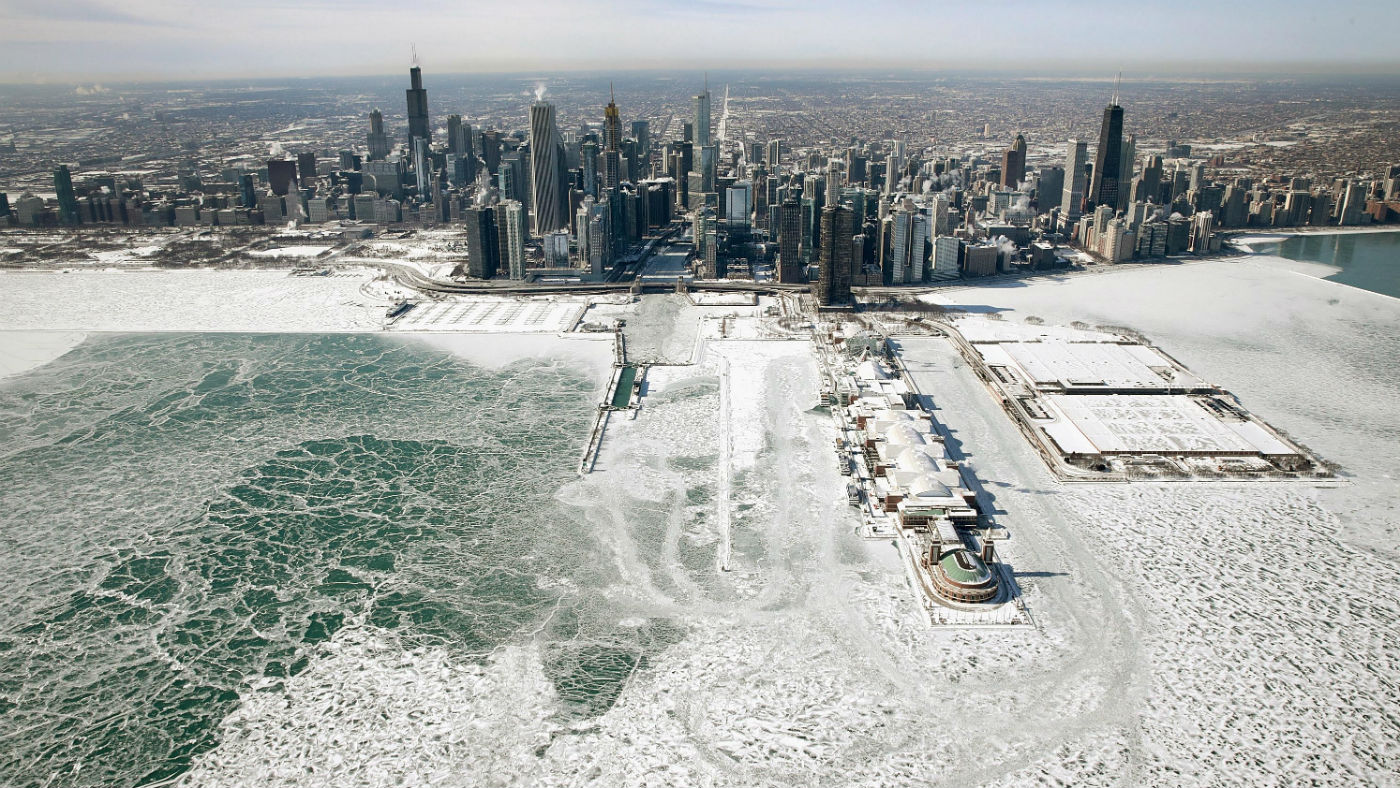
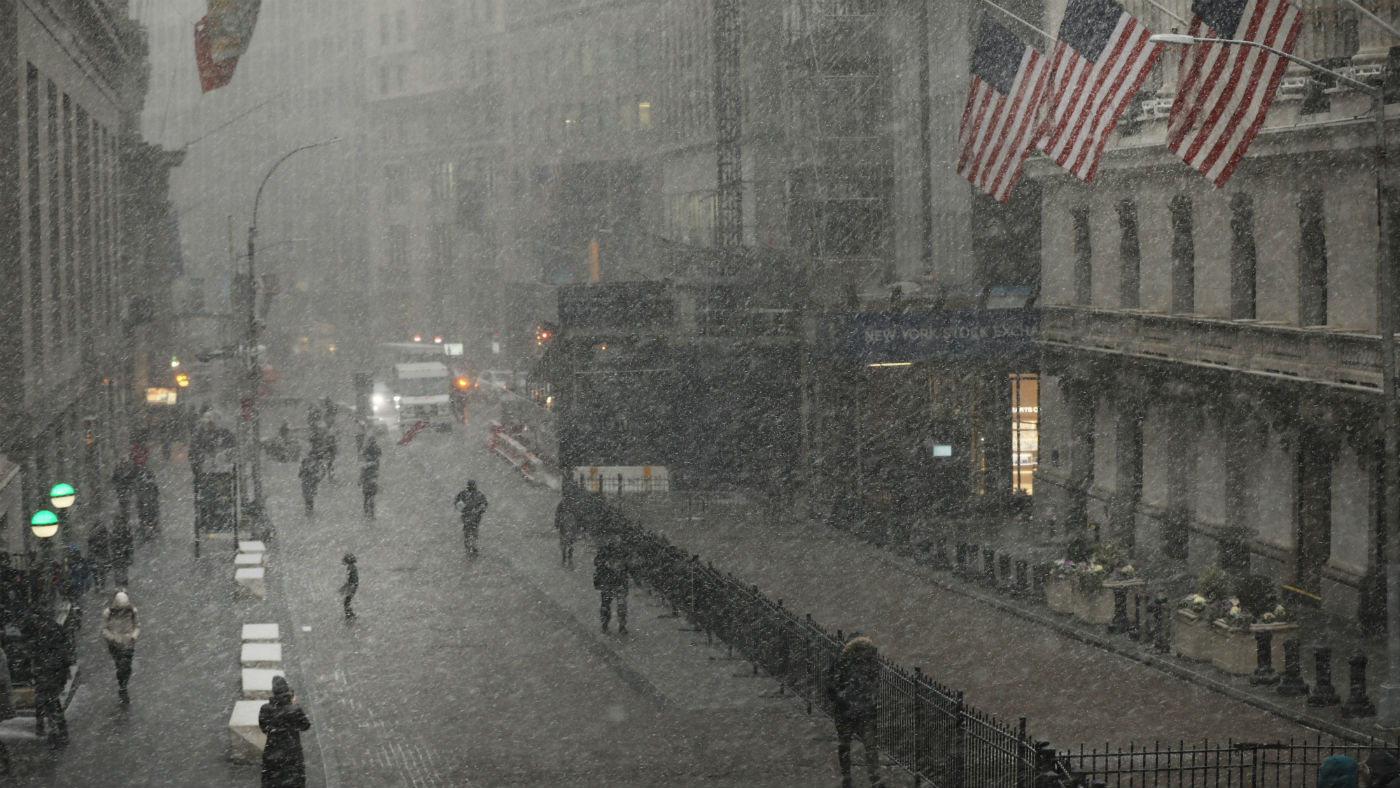
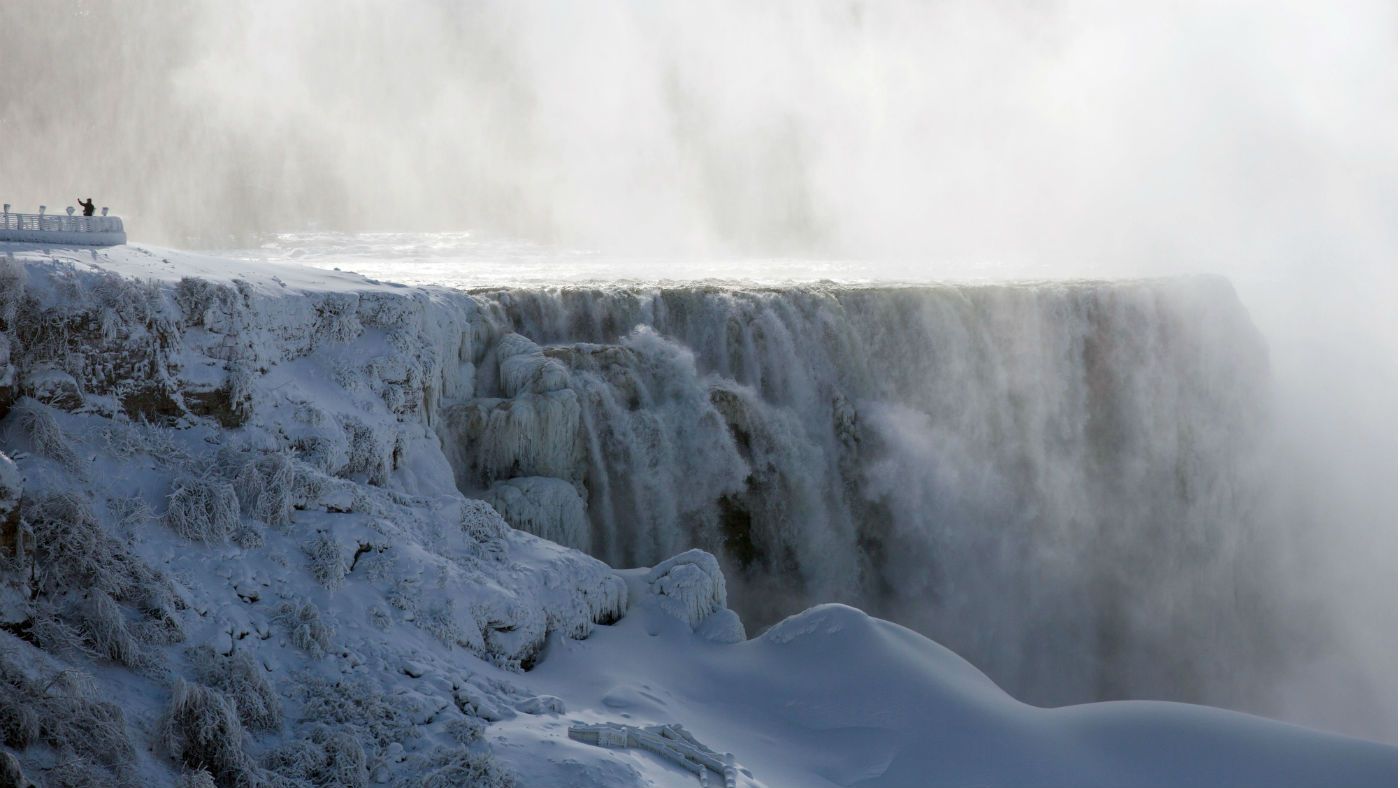
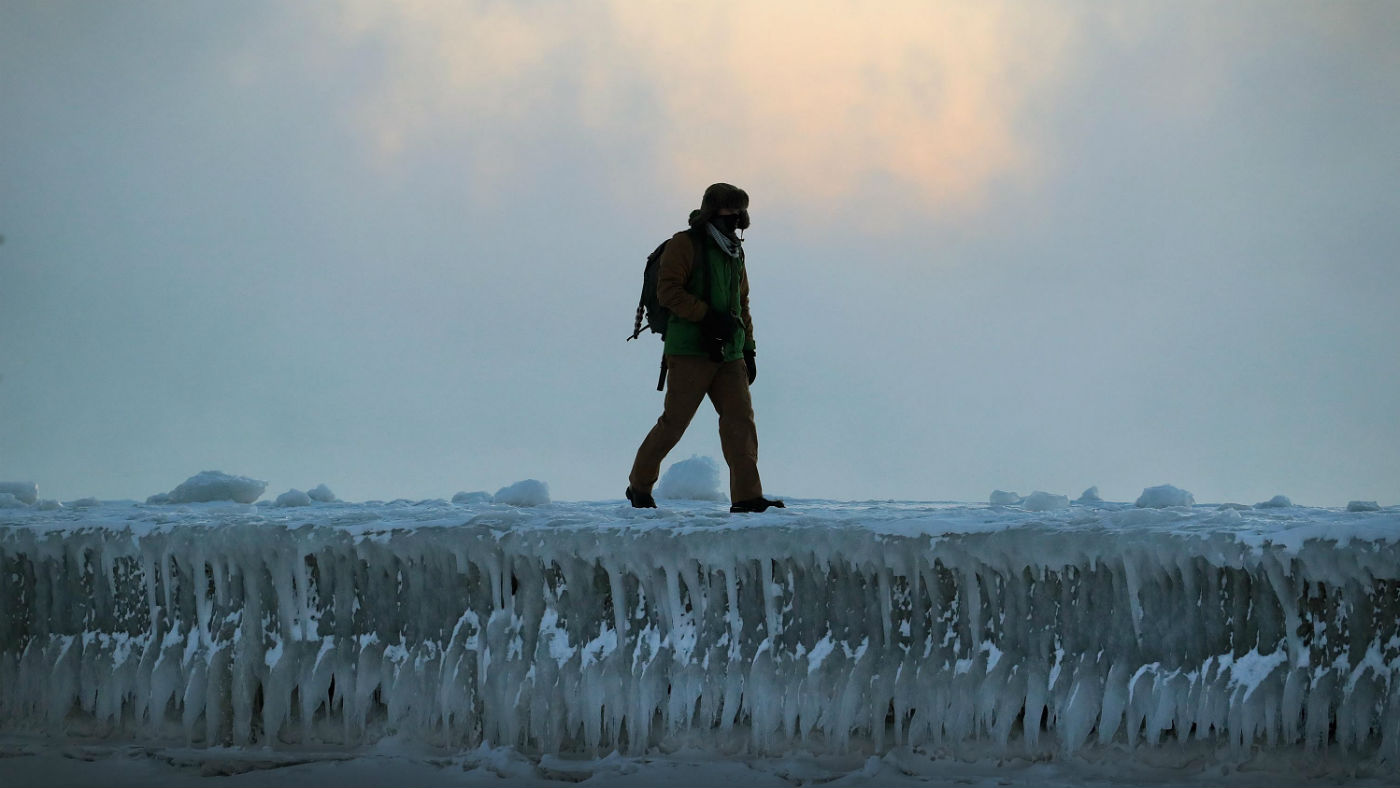
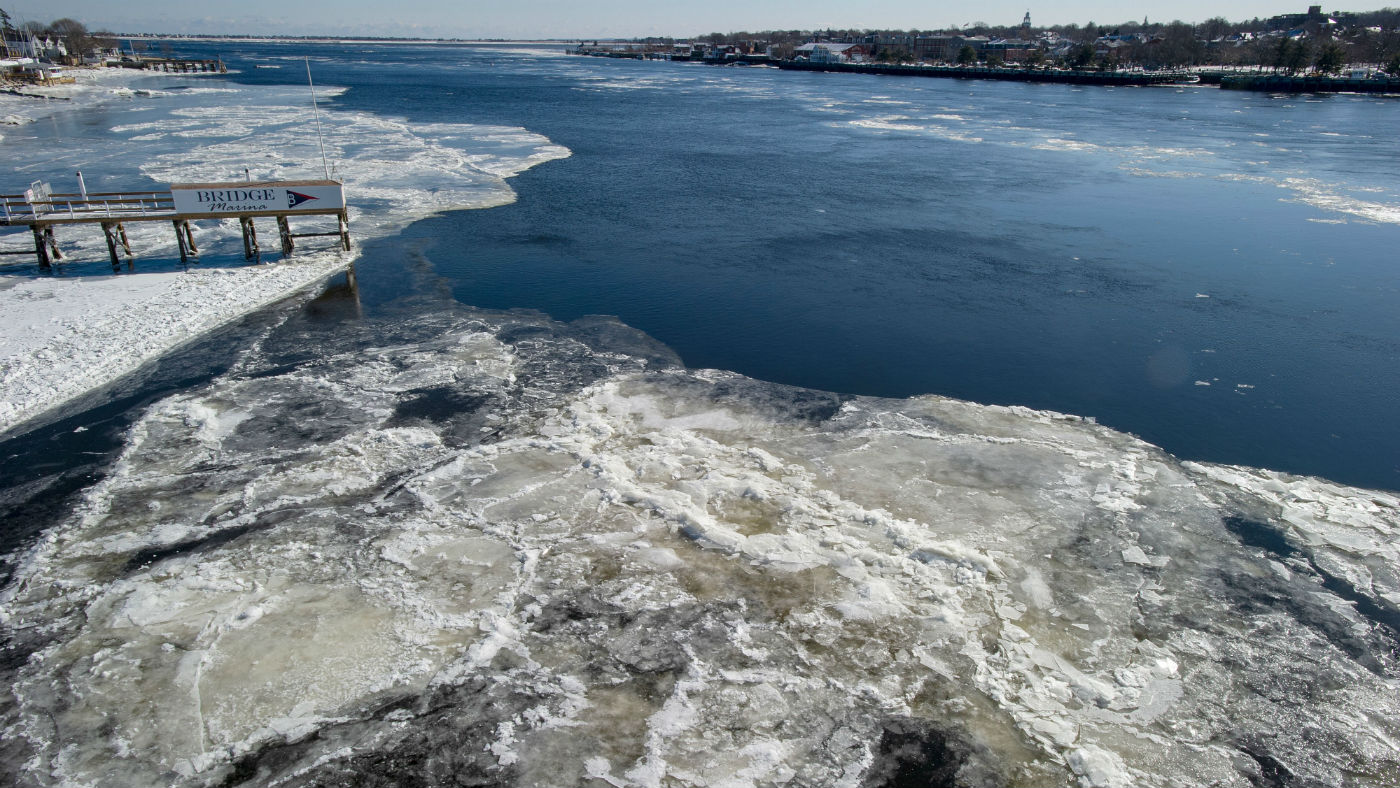
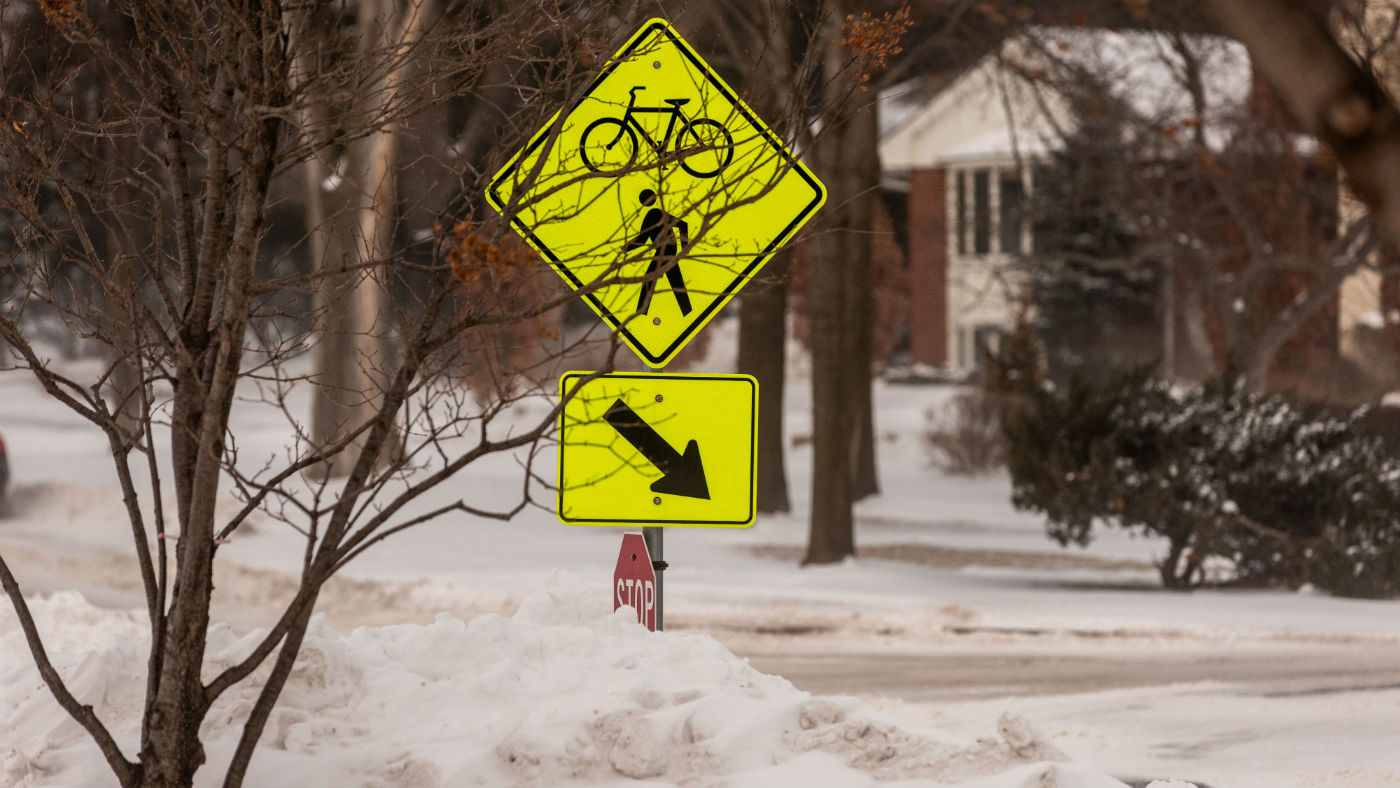
At least 20 deaths have been reported as icy cold winds caused by a polar vortex continue to batter the US.
The victims include “an elderly Illinois man who was found several hours after he fell trying to get into his home and a University of Iowa student found behind an academic hall several hours before dawn” on Wednesday, says Fox News.
In Chicago, temperatures have plummeted to -30C, forcing schools and businesses to close, as well as flight cancellations. And in Park Rapids, Minnesota, the mercury has dropped as low as -41C.
The Week
Escape your echo chamber. Get the facts behind the news, plus analysis from multiple perspectives.

Sign up for The Week's Free Newsletters
From our morning news briefing to a weekly Good News Newsletter, get the best of The Week delivered directly to your inbox.
From our morning news briefing to a weekly Good News Newsletter, get the best of The Week delivered directly to your inbox.
President Donald Trump used the cold snap to mock the concept of global warming.
But scientists were quick to debunk his methodology.
So what is a polar vortex and why is it making the US so cold?
What is a polar vortex?
A free daily email with the biggest news stories of the day – and the best features from TheWeek.com
A polar vortex is “a large area of low pressure and cold air surrounding both of the Earth’s poles”, according to the US National Oceanic and Atmospheric Administration (NOAA).
The actual vortex is the counterclockwise flow of air that helps keep the colder air close to the poles. During winter in the northern hemisphere, the polar vortex repeatedly expands, sending cold air southward with the jet stream, bands of fast-moving air.
Warm air coming up from below then causes the jet stream to weaken and buckle, sending warmer air into Alaska and pushing cold winds down into the US Midwest and East Coast.
Is this current cold snap unusual?
Events of similar magnitude have occurred in the past. The last one “was back in 2004, and another one in the mid-1990s, and another one in the mid-1980s”, Greg Carbin, in charge of NOAA’s Weather Prediction Center Forecast Operations Branch, told news site NPR. “Every few decades we see these events occur, where that arctic air that normally resides at the pole starts to make its way south into parts of the US.”
But what is unusual is “the rapid swing from very cold to very warm”, Carbin added. “We’re going to see 60-degree changes in temperature across the Chicago area in about four days.”
Is climate change to blame?
Studies have “pointed to a recent increase in instances where the polar vortex has bulged down into heavily populated areas”, says The Guardian. Scientists are “gaining a better understanding of why this is happening, with many identifying climate change as an influence”, the newspaper continues.
“We aren’t entirely there yet but there’s more and more support for this concept,” said Jennifer Francis, senior scientist at the Massachusetts-based Woods Hole Research Center.
But “linking [this rise] directly to climate change is a very difficult task, and usually we wait until after these events occur to try to come up with attributions for these events”, adds NOAA’s Carbin.
-
 Will increasing tensions with Iran boil over into war?
Will increasing tensions with Iran boil over into war?Today’s Big Question President Donald Trump has recently been threatening the country
-
 Corruption: The spy sheikh and the president
Corruption: The spy sheikh and the presidentFeature Trump is at the center of another scandal
-
 Rubio boosts Orbán ahead of Hungary election
Rubio boosts Orbán ahead of Hungary electionSpeed Read Far-right nationalist Prime Minister Viktor Orbán is facing a tough re-election fight after many years in power
-
 Greenland’s capital becomes ground zero for the country’s diplomatic straits
Greenland’s capital becomes ground zero for the country’s diplomatic straitsIN THE SPOTLIGHT A flurry of new consular activity in Nuuk shows how important Greenland has become to Europeans’ anxiety about American imperialism
-
 Epstein files topple law CEO, roil UK government
Epstein files topple law CEO, roil UK governmentSpeed Read Peter Mandelson, Britain’s former ambassador to the US, is caught up in the scandal
-
 Iran and US prepare to meet after skirmishes
Iran and US prepare to meet after skirmishesSpeed Read The incident comes amid heightened tensions in the Middle East
-
 Which way will Trump go on Iran?
Which way will Trump go on Iran?Today’s Big Question Diplomatic talks set to be held in Turkey on Friday, but failure to reach an agreement could have ‘terrible’ global ramifications
-
 Israel retrieves final hostage’s body from Gaza
Israel retrieves final hostage’s body from GazaSpeed Read The 24-year-old police officer was killed during the initial Hamas attack


